Though there is no shortage of big-budget, Hollywood entertainment available through every outlet imaginable these days, it has long been difficult for conservatives to find films that really speak to their life ways and values, or at the very least, films from which conservatives can derive any message or meaning aside from “don’t act like the people you’ve seen.”
But as it turns out there are more than a few Hollywood movies that have made their way through the gauntlet of baked-in, bone-deep leftist ideology that has so infested Hollywood for decades.

By accident, design or through clever marketing and trickery there are more than a few movies with decidedly conservative messages, or movies with stories that at the very least will appeal to conservatives on principle.
Today we bring you a list of 15 conservative movies you should definitely watch, spanning all genres from action and drama to parody and thriller. No matter what sort of movies you like, as long as you can appreciate a good film you are sure to find a movie on this list that you will enjoy.
The Book of Eli
The Book of Eli, released in 2010, is a post-apocalyptic tale of a man travelling through the dystopian remains of the western United States. The man, Eli, as portrayed by the always entertaining Denzel Washington has in his possession a book that he is doggedly attempting to deliver to the West coast.
It is this book that the petty tyrant of a town he travels through, Carnegie, played in spectacularly fashion by the inimitable Gary Oldman, will stop at nothing to get.
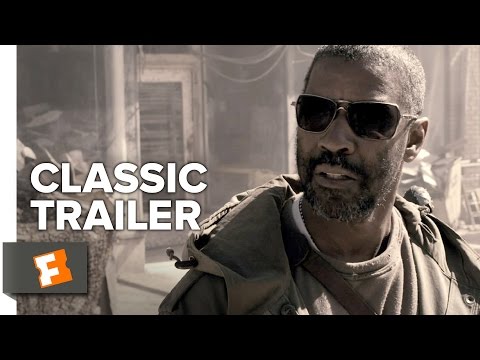
Along the way Eli encounters ceaseless depravity, ruin and the crushing weight of existential futility in America that was, and though he is beset by bandits, brigands and a lack of resources he not only refuses to give up his quest but maintains his humanity, dignity and virtue in a wasted nation. Sort of like today…
The ending might be a twist you can see coming a mile away, but the Book of Eli can show us how important it is to stay the course, even when it is anything but certain, and that your principles should persist even when the whole world goes to hell.
No Country for Old Men
A 2007 adaptation of Cormac McCarthy’s riveting novel of the same name, this film by the Cohen Brothers is a tale about a man who gets in over his head after stumbling across the site of a massive Mexican cartel drug deal gone bad in the middle of the desert during his hunting foray.
The man, Llewellyn Moss,soon finds himself a marked and hunted man as the cartels bring in a remorseless and seemingly unstoppable hitter, Anton Chigurh.
Though the cat and mouse chase is absolutely riveting and full of several unexpected twists and turns, the real protagonist of the movie is not Moss, but instead an aging sheriff on the trail of both men, Ed Tom Bell portrayed by Tommy Lee Jones.
Sheriff Bell is a man who is nearing the end of his career, and is increasingly incapable of dealing with the escalating violence, viciousness and remorselessness that is embroiling the region. The real story is his coming to grips with the events that we witness on screen.
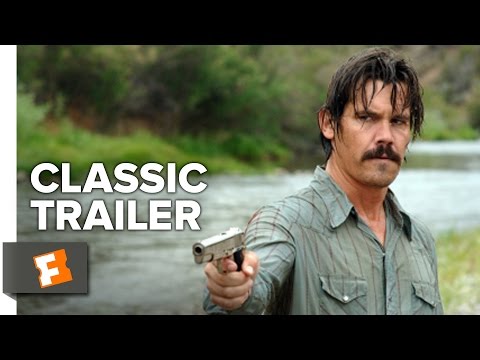
A mesmerizing film by some of the best living filmmakers and adapted from a harrowing and darkly beautiful novel, No Country for Old Men is simultaneously a film about choice and consequences, elemental forces that cannot be contained and sticking to your guns even when it might mean your death.
The Grey
The Grey is a classic tale of disaster, adversity, survival and introspection, that sees us following a crew of Alaskan oilfield workers who find themselves marooned and injured, and the harsh Alaskan Wilderness after the plane they are riding in crashes.
Led by John Ottway as portrayed by Liam Neeson, the men are constantly harried by wolves and are forced to set their differences aside if they want to survive. Increasingly difficult decisions are made as the men claw their way through the harsh wilderness in an attempt to keep their lives.
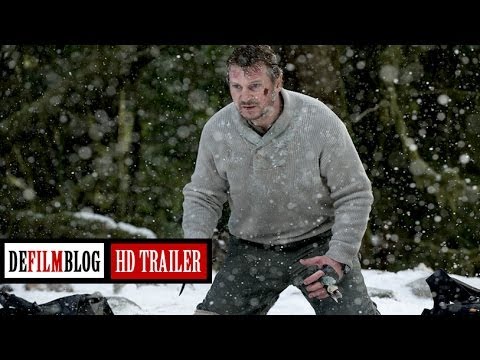
Although the film sounds like any standard issue yarn of survival in an unforgiving wilderness, it is also a poignant tale about a man grappling with nihilism in the wake of his wife’s death. Ottway initially has a very dim appraisal of his coworkers, but after their everyday circumstances are set aside some better qualities emerge while others “better” qualities are shown to be just an act.
Thrilling and with a surprising philosophical bent The Grey sets itself apart with tight direction, an excellent leading man and gorgeous landscape shots. The movie is an ode to persistence in the face of seemingly unbeatable odds.
United 93
On September 11th, 2001, everything changed for America and the world. Put under attack by hijacked commercial airliners, a nation collectively held its breath as it stared into an uncertain future.
One of those airliners, United Airlines Flight 93, was diverted from its intended, terrible purpose after passengers rallied and tried to retake the aircraft from the hijackers.
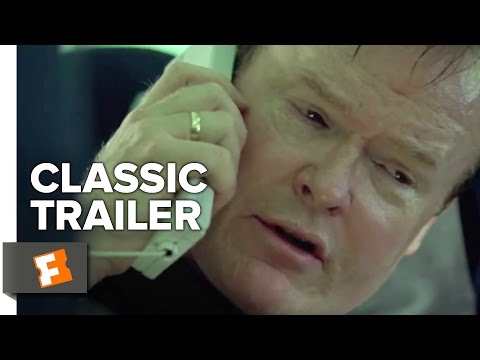
This film is a real-time account in docu-drama style of the events that transpired on board the aircraft and elsewhere among air traffic control personnel. It is a chilling, riveting, grimm and ultimately inspiring reminder about civic duty and taking responsibility for your circumstances no matter what they might be.
Though we have a surprisingly clear picture of what transpired on the aircraft that day, some liberties are taken with gaps in the information in order to tell a coherent story. Nonetheless, United 93 is required viewing for any red-blooded American.
Starship Troopers
Though it deviates pretty radically from the beloved Robert A. Heinlein novel of the same name, Starship Troopers is nonetheless a pretty good sci-fi action yarn at face value, but the real sustenance of the movie is it’s biting and deeply satirical lampooning of ultra-nationalist sentiment.
The story follows a group of high school students (you read that right) who are joining up in federal military service in order to secure themselves citizenship rights, as compared to remaining merely civilians with less status and fewer civic privileges.
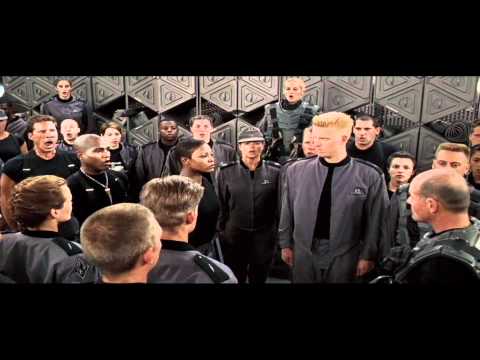
Naturally, a planet of bugs lurking elsewhere in the galaxy (somehow) launch a meteor that strikes and obliterates their hometown.
Melodrama ensues with dear John letters, massive failures in training, rising to the occasion, redemption, loss, heroism and woven throughout a deeply satirical piss-take aimed at the military industrial complex.
It is a fun, if corny, romp on its surface, but the movie also serves as a cautionary tale and a self-deprecating joke that the most fervently patriotic of us can enjoy, and would do well to heed.
Red Dawn
More than any other, this film codified the half fear half fantasy of many preppers, especially Cold War-era youngsters. Red Dawn tells a story that sounds almost laughable today: Russians along with their Cuban and Nicaraguan allies invade and occupy the continental United States.
The setting is a somewhat nebulous World War III scenario in an alternate timeline: NATO has been disbanded. The United States, already geographically isolated, is strategically isolated and further backed into a corner after Mexico decides to go socialist.
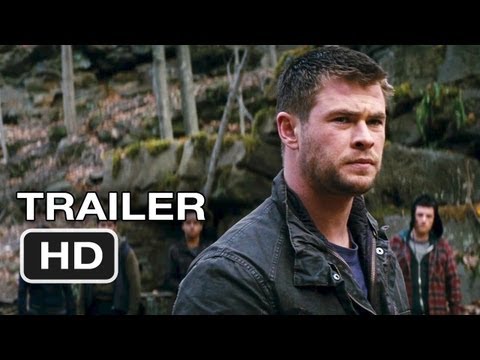
A group of teenagers and young adults have Russian paratroopers airdropping into their town in the middle of the day. Naturally, they band together, desperately try to stay alive and eventually metamorphize into a resistance movement using American and stolen Soviet equipment: the Wolverines.
Director John Milius knows how to shoot his films, and this one is no exception. The film is tense, frightening and exciting, but pulls no punches with its depictions of what life would be like in an occupied America, especially one where outmanned and outgunned civilians strive against all odds to overthrow or at least degrade their numerically and technologically superior occupiers.
Man on Fire (2004)
This adaptation, directed by Tony Scott and sourced from the novel of the same name Man on Fire tells the tale of John W. Creasy, a former Force Reconnaissance Marine and CIA special activities agent who’s trying to get back on the horse after nearly ruining his life with alcoholism, guilt and a botched suicide attempt. An American friend of Creasy who runs a security firm in Mexico City gets him a gig protecting a wealthy automaker’s young daughter, Pita.

Initially reluctant, Creasy begins to rediscover his better qualities and his purpose through the job, but things go pear-shaped when the young Pita is kidnapped.
Consumed with guilt and a cold fury, Creasy begins a roaring rampage of revenge to eliminate everyone involved in the kidnapping and to get answers in an increasingly murky and harrowing investigation regarding who put who up to taking his young charge.
Anchored by excellent cinematography and a stellar cast, Man on Fire is about loss, despair, and redeeming oneself even after you are hanging over the edge of oblivion. Sometimes sacrifice is the only penance that can be left to you.
Braveheart
Braveheart is a film that hardly needs any introduction for most of our readers, but for the younger set out there who somehow have managed to miss this epic film, you should correct that post haste.
Directed by and starring Mel Gibson, Braveheart tells an embellished and only reasonably accurate account of William Wallace, late 13th century Scottish warrior, as he struggles to free Scotland from the oppressive rule of king Edward I of England.
Throughout the rollicking events of the film William Wallace must deal with the loss of his love, the betrayal and seeming betrayal of countrymen who care more about treasure than nation, and the intrigue of royal politicking. Gathering and leading an army by his side that is composed of often quarrelsome rival clans proves to be an incredible challenge in its own right.
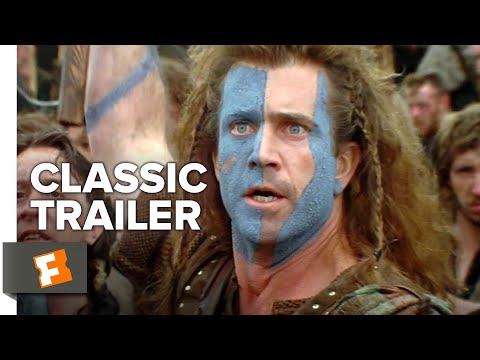
A blockbuster smash hit upon release that has only grown more and more fondly received as the years have gone on, Braveheart is a quintessential story about love for country, loss, the challenges of leadership, bravery in the face of overwhelming odds and the importance of tribe, of having people on your side; your people. If you are a history buff the account of Wallace’s life and actions in the film is liable to make you grind your teeth, but table your gripes for a few hours and enjoy this endlessly quotable movie! Freeeeeee-dommmmmm!
Unforgiven
Another film whose director is also the leading man, Unforgiven is an epic, gritty and poignant western that also serves as a no-holds-barred takedown of the entire genre.
This is especially poetic because this was the final true western genre film that Clint Eastwood starred in, a genre that he helped boost to global recognition and fanfare.
This is not the typical western of yesteryear, one where the good guys wear white hats and the bad guys wear black: all we have is gray, gray and grayer yet morality in a tale of redemption, revenge and learning too late about one’s limitations.
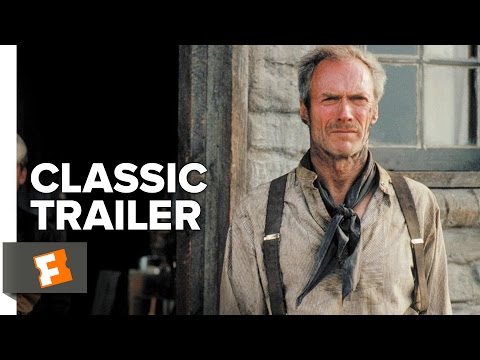
Eastwoods stars as William Munny, a retired outlaw and gunslinger who is recruited to take revenge on some cowboys who grievously maimed a prostitute.
Though Munny is a widower and a profoundly repentant man raising two children on a failing farm, he isn’t doing it for charity or to make amends: he is in it for the payout, and has been recruited by a young gunslinger to claim and split the bounty put on the hateful cowboys by the victimized prostitute’s coworkers.
Munny very literally picks up his guns again, recruits another retired accomplice and sets off to do the job.
The gunfights crackle, and all the typical western tropes are here, but they are almost always shockingly grim and realistic portrayals of how the events so often depicted would really go down.
Tired, old gunslingers are, well, tired, old and slow, surviving by luck if they survive at all. Young pretenders to the title find out that there is nothing glamorous whatsoever about gunfighting and living that lifestyle.
Unforgiven reminds us that living by the sword very often means you will die by the sword, and that the real stuff of survival on the sharp end is anything but fun, fantastic and exciting.
Dirty Harry
Another Clint Eastwood mega-hit, Dirty Harry is arguably his most iconic role and the one that shot him to superstardom. A gritty neo-noir thriller, Dirty Harry follows the eponymous “Dirty” Harry Callahan as a San Francisco Police Department inspector hot on the trail of a psychotic killer, a sniper who chooses his victim’s seemingly at random unless he is paid a hefty ransom.
Dirty Harry Callahan is such an iconic antihero because we are all sympathetic to his plight: A man of action, not introspection or nicety, who is ready, willing and able to get the job done for the right reasons, no matter the cost, but also a man who is mired in an increasingly functionary bureaucracy that hinders him at every turn.
Frustrated to the bitter end by a legal system that seems to serve criminal more than victim, Callahan begins following the killer on his own time after he gets off of charges on a technicality.
The final, climactic showdown against the irredeemably evil psychopath is immensely satisfying, and Dirty Harry literally and figuratively throws down his badge in the end. Anyone who has ever been fed up with the system and its rules that get in the way of doing the right thing will cheer through the entirety of Dirty Harry.
Black Hawk Down
Ridley Scott’s Blockbuster adaptation of the nonfiction book of the same name written by journalist Mark Bowden, Black Hawk Down is an account of the disastrous 1993 U.S. military raid in Mogadishu, Somalia.
In response to the local warlord’s seizure of Red Cross aid and food shipments, the U.S. military besides to put an end to his tyranny by launching a raid to capture two of his top lieutenants after U.N. peacekeeping forces prove to be completely neutered and not up to the task, as always.
The raid begins smoothly enough, but after a U.S. UH-60 Blackhawk helicopter is shot down by RPG fire things snowball and rapidly go from bad to worse.
Pilots are captured, roadblocks are set and what follows is the Battle of Mogadishu, a day-long bloodbath that saw nearly two dozen US servicemen killed and over 1,000 Somali irregular and militiamen casualties.
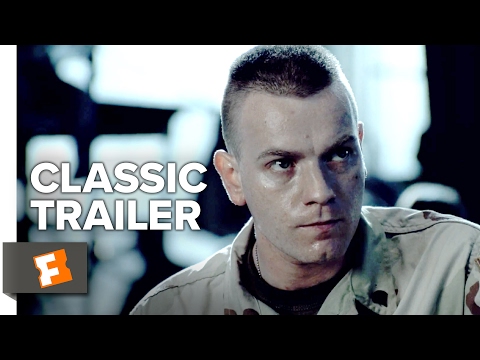
The film is brutal, and a bracing look at warfare. Heroism and valor are on full display, but the film pulls no punches with the gory reality of what happens when a top-tier military force is pitted against a seemingly numberless swarm of poorly trained and ill-equipped fighters.
It is easy for viewers to truly feel the chaos and confusion attendant with full-scale modern warfare in a built up area.
300
The bombastic, gory and thrilling big screen adaptation of Frank Miller’s comic of the same name, 300 was a phenomenon when it was first released in theaters way back in 2007. The story tells a fictional, highly stylized, even fantastical, version of the entirely real historical Battle of Thermopylae during the Persian Wars.
Noble and ferocious Spartan King Leonidas leads a tiny force of 300 spartans, his personal “bodyguard”, into battle against the absolutely immense Persian army led by the “God-King” Xerxes.
Myth and prognostication prevent the deployment of the full might of the Spartan army, a roadblock further cemented by meddling, ambitious and traitorous Spartan senators.
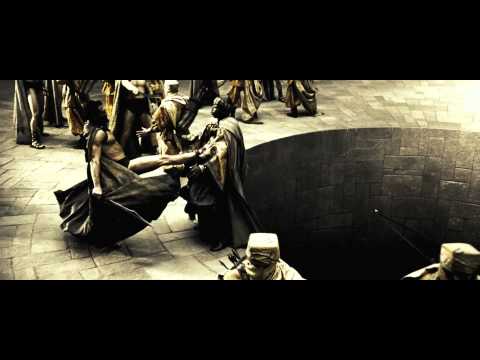
A classic last stand in every sense of the word, 300 chronicles the unbelievable initial victories of the tiny band of Spartans in the face of a numerically superior foe, only to see them slowly whittled down and inevitably enveloped before being killed to a man.
Their heroic, unflinching sacrifice in the face of their foe, according to Spartan law, is the spark that galvanizes the rest of Sparta and eventually all of Greece against the invading horde.
The Thin Red Line
Another war epic, both written and directed by virtuoso filmmaker Terence Malick, The Thin Red Line shows us a slightly fictionalized version of the battle of Mount Austen, one battle among many in the grueling Guadalcanal campaign during World War II.
Comprised of a surprising amount of introspection, it portrays the point of view of various soldiers in C Company, 1st Battalion, 27th Infantry Regiment, 25th Infantry Division.
Compared to many other war films, The Thin Red Line is particularly philosophical, and explores in detail the internal motivations, and innermost thoughts, of the men it portrays.
From lowly privates who just want to escape the meaninglessness, drudgery and horror of war all the way up through power hungry senior officers who are enamored of the glory they think is inherent to the whole affair.
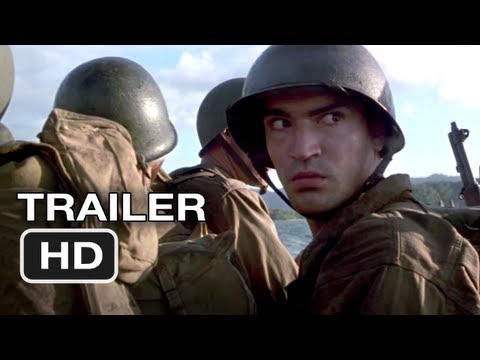
The film is notable for presenting such a nuanced, human and multifaceted view of war and its effects on the people who fight it, and not for nothing the entire film is set against a backdrop of jaw-droppingly gorgeous cinematography and landscape shots that are punctuated by the bloody exclamation point of war itself.
No Safe Spaces
The only legitimate documentary on this list, No Safe Spaces, released in 2019, chronicles the increasingly hostile and censorious climate that has infested seemingly every American University and place of learning throughout our country.
Directed by Justin Folk, the film features Adam Carolla and Dennis Prager interviewing various faculty and college students at different universities about such topics as freedom of speech, the right or lack of right to be exposed to dissenting opinions, political censorship and the increasingly prevalent attitude of “canceling” anyone who does not tow the line with the prevailing corporate and government sponsored attitudes of the era.
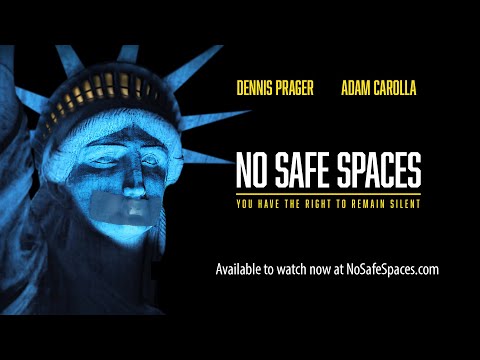
Chronicled in the film are the challenges experienced by Dr. Jordan Peterson in Canada, the Brett Weinstein incident at Evergreen State College’s day of absence and the Lindsay Shepard controversy with more besides.
Notable is that the filmmakers purposely included left-leaning opinions on the matter in the film with many of them arguing that modern day ultra-leftists getting their way on these topics today will result in the pendulum swinging back to smash in their faces sometime in the future.
Gran Torino
Clint Eastwood racks up another double entry on this list with his film Gran Torino, the story of a bitter and increasingly hostile (to the outside world) veteran of the Korean war who has recently become a widower. The tale is one that is likely to be very close to most of us, as Eastwood could be any one of a number of people that we all know or used to know.
Walt Kowalski, portrayed by Eastwood, is losing touch with the world: his family is disinterested, his sons don’t get along with him and his grandchildren think he might as well not exist at all. His racist tendencies are flaring hard as the world continues to move on and leave him behind, and even his once whiter than porcelain neighborhood is now rapidly diversifying with a massive influx of Southeast Asian immigrants.
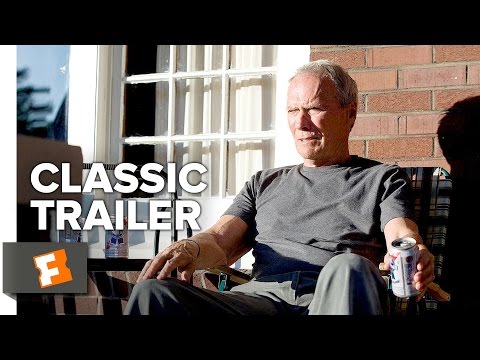
But, sometimes people surprise you, and as Kowalski learns that he indeed has more in common with the principles and lifeways of his Asian neighbors that he thinks he hates than he does with his own family, he takes their young son under his wing after saving him from his gangbanger cousins.
Kowalski endeavors to teach the young man a few things he knows about life and in the end gifts him his most prized possession, his mint condition Gran Torino, after ridding the town of a dangerous scourge through an act of selfless bravery.
Conclusion
There you have it. A list of 15 movies that no film-loving conservative should go without seeing. There is something for everyone on this list, and within each film are observations, messages and themes that are likely to resonate with the values that conservatives hold so dearly. Get your list out and clear your weekend and make sure you check out each of these films.
P.S. We’ve made a list of 20 survival movies you should watch here.

via Modern Survival Online https://ift.tt/3xeYI7Q
No comments:
Post a Comment